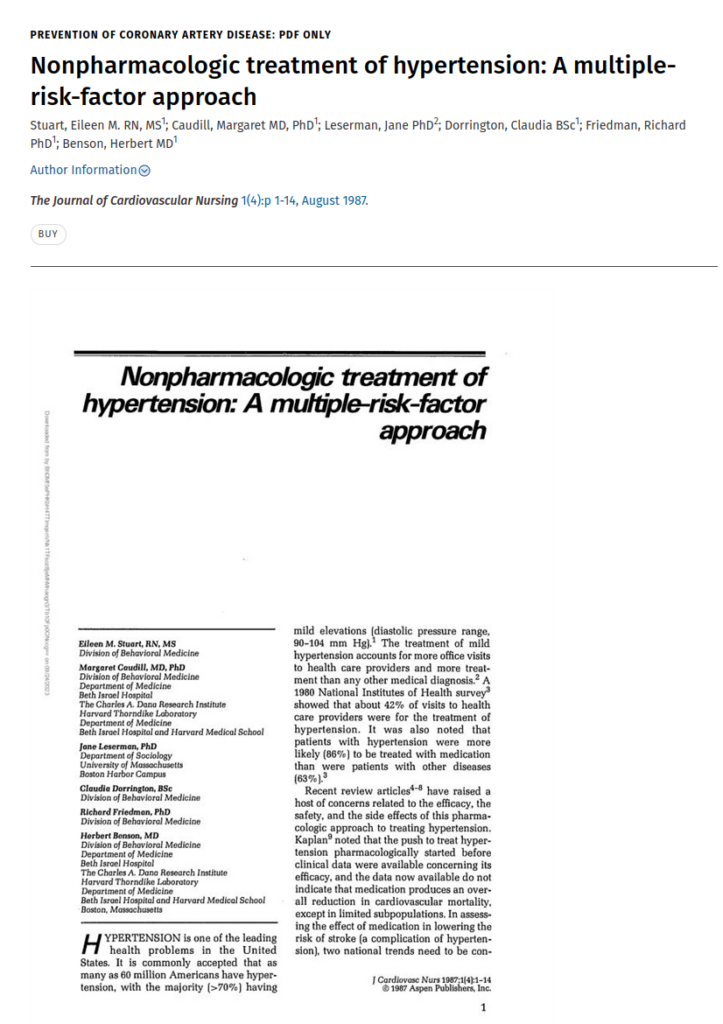Publication
Journal of Cardiovascular Nursing
1(4):p 1-14
Abstract
Hypertension is one of the leading health problems in the United States. It is commonly accepted that as many as 60 million Americans have hypertension, with the majority (>70%) having mild elevations (diastolic pressure range, 90-104 mm Hg). The treatment of hypertension accounts for more office visits to health care providers and more treatment than any other medical diagnosis. A 1980 National Institutes of Health survey showed that about 2% of visits to health care providers were for the treatment of hypertension. It was also noted that patients with hypertension were more likely (86%) to be treated with medication than were patients with other diseases (63%).
Web and Email Links
Related Listings
Journal
AAAS Eureka Alert
Researchers identified genes and biological pathways linked to immune regulation, metabolism, and circadian rhythm in people who reduced their hypertension after eight-week relaxation response training
Journal
PLOS ONE
The relaxation response (RR) is the counterpart of the stress response. Millennia-old practices evoking the RR include meditation, yoga and repetitive prayer. Although RR elicitation is an effective therapeutic intervention that counteracts the adverse clinical effects of stress in disorders including hypertension, anxiety, insomnia and aging, the underlying molecular mechanisms that explain these clinical benefits remain undetermined. To assess rapid time-dependent (temporal) genomic […]
Journal
Obstet Gynecol
During a 5-month study, we examined the effects of the relaxation response on premenstrual syndrome in 46 women who were randomly assigned to one of three groups: a charting group, a reading group, and a relaxation response group. The relaxation response group showed significantly greater improvement than the charting and the reading groups on physical symptoms (P less than .025 for both comparisons). There was a significant group-by-severity effect for charting versus relaxation resp […]

